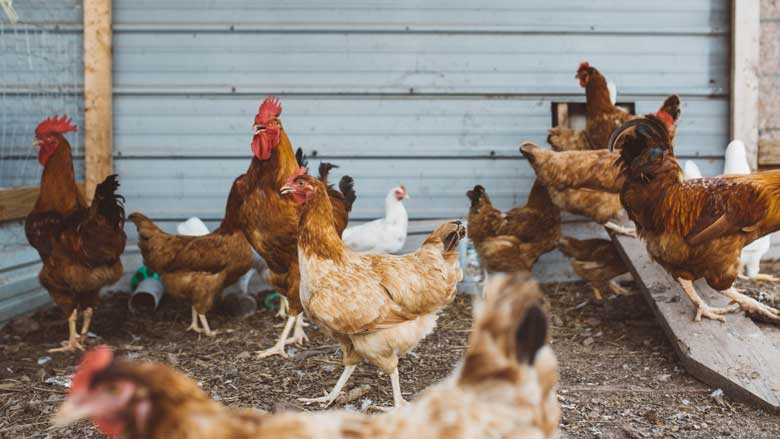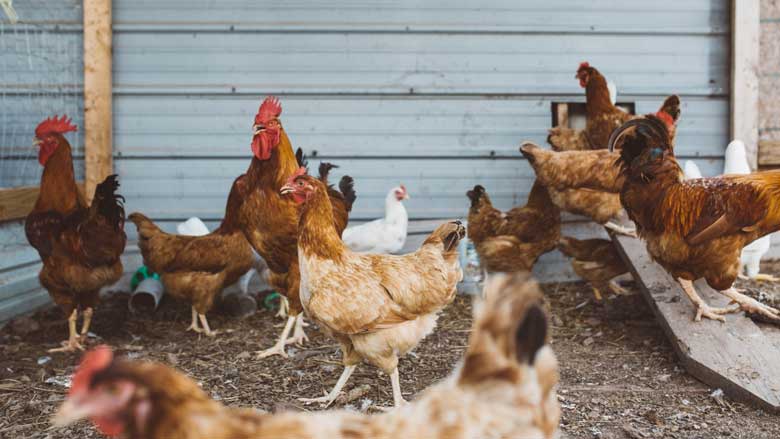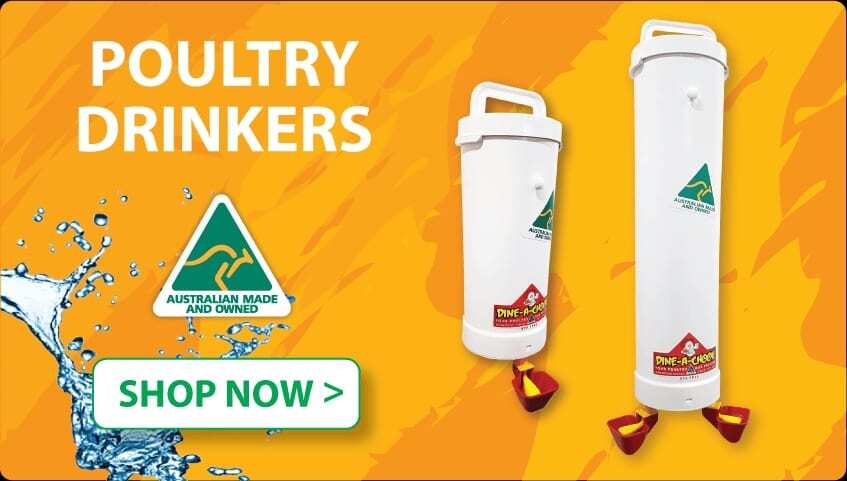How to Care for Chickens on Your Weekend Away
How to Care for Chickens on Your Weekend Away
Living in New Zealand with a backyard flock of chickens doesn’t mean you’re stuck at home forever. Yes, you can still take that much-needed trip, but there are a few important things to sort out before you go.
Make sure your chickens have enough feed and water, and that they’re safe from predators and extreme weather. With these basics covered, your flock will be just fine while you’re away.
How Long Are You Going?
The length of your trip will determine how much preparation is needed.
- 1 - 2 days your chickens can be accommodated for
- 3 or more days and you will need a pet or chicken sitter.
What Do My Chickens Need While I’m Away?
For a short trip of 1-2 nights, here’s what your chickens will need:
- Feed: Make sure your feeder can hold enough feed for 120-150g per bird per day. If your feeder can’t hold that much, think about adding another one. Read our buying guide for chicken feeders.
- Water: Your chicken drinker should supply at least 500ml of water per bird per day. On hot days, your chickens might need closer to a litre each, so it’s a good idea to have enough water to last an extra day.
- Shade: Make sure your chickens have access to shade so they can stay cool during the day.
- Predator Protection: Keep your chickens safe by making sure their coop and run are secure. Think about adding bird netting or other protective measures.
- Weather Protection: New Zealand’s weather can be unpredictable, so make sure your chickens are protected from both heat waves and cold snaps. A well-insulated coop and good ventilation will help.
If you’ve got enough food, water, and weather protection in place, your chickens should be fine staying in their coop for a couple of days. Just remember that being cooped up for too long can make them bored or irritated, so give them enough space to move around and keep themselves entertained.
Do I Need a Chicken-Sitter?
So, can you leave your chooks without supervision? Here are a few reasons you might need a chicken-sitter:
- You’ll be away for more than 3-5 days
- High temperatures or severe storms are predicted
- Extreme cold weather is on the way
- Your drinker doesn’t hold enough water (shop for automatic mains pressure chicken drinkers)
- Your feeder doesn’t contain enough feed
- You’ve got an egg-eating chicken
- Your coop is too small for 24/7 confinement, and you don’t have an automatic door or a secure run (with high fences and preferably a roof)
- Your coop isn’t shady enough
- You’ve had issues with pests or predators before
If you do need a pet sitter, don’t worry—chickens are pretty low-maintenance. Even if you’re gone for a few weeks, they usually just need a quick morning and evening check.
And as a bonus, they’ll likely leave some fresh eggs as a little thank you!

Chickens and Extreme Weather
Extreme weather can be tough on chickens, so if there’s a heatwave or cold snap on the horizon, it’s a good idea to have someone check on your flock. New Zealand’s weather can change quickly, so it’s important to be prepared whether it’s scorching hot or freezing cold.
Heatwaves and Hot Weather
- Water Placement: If you’re using refillable chicken drinkers, put them in a shaded spot to keep the water cool.
- Coop Insulation: Insulate the chicken coop roof to help keep the inside cooler.
- Shaded Pen: Roof part of the chicken pen and insulate where you can.
- Automatic Drinkers: If you’ve got a larger flock, think about installing a Dine-A-Chook mains pressure or drum drinker to make sure they’ve always got fresh water.
- Electrolytes: If your chickens are struggling with the heat, electrolyte solutions can help them stay hydrated.
Extreme Cold and Freezing Winds
- Water Monitoring: If the temperature drops, water can freeze, so make sure your pet sitter changes the water in the drinker or waterer drum each morning and night.
- Draft Protection: Stop cold drafts by insulating the coop properly.
- Warm Perches: Use timber perches, which are warmer than metal.
- Extra Feed: Provide more feed to help your chickens generate body heat.
- Heat Lamps: In extreme cold, adding a heat lamp in the coop can help keep your chickens warm.
How to Look After Your Chickens While You're Away: 5 Key Steps
If you’re planning a trip and want to make sure your chickens are well cared for, here’s a simple guide to keep things running smoothly while you’re gone.
1. Water
Water is always the top priority. Dehydration can set in quickly, especially during a hot New Zealand summer. Even on cooler days, your chickens need access to plenty of clean, fresh water. At a minimum, each bird should have access to 500ml of water per day, but in hot weather, closer to a litre might be needed. Whichever chicken waterer you’re using, make sure there’s more than enough to last the entire time you’re away. Avoid using open containers, as they can easily get contaminated or knocked over, leaving your birds without water.
If you’re concerned about water availability, our mains pressure drinkers or 20-litre drum drinkers are great options, especially if you have access to a garden hose or tap in your chicken coop. With these automatic drinkers, your birds will have a continuous supply of clean water, so you won’t need to worry about dehydration while you’re away.
2. Security
Never leave your chickens unlocked at night, even if you’ve never had trouble with predators before. Chickens are vulnerable, and leaving them exposed is risky. If you’re planning ahead, consider installing bird netting or other protective measures. Our bird netting is designed to keep predators out while allowing fresh air and sunlight in.
For added security, you might also consider an automatic chicken coop door, which can be set to close at dusk and open at dawn. These doors are typically powered by batteries or solar panels and can give you peace of mind, knowing your chickens are safely locked up each night.
3. Feed
Make sure your chickens have enough food to last while you’re away. Each bird needs about 120g-150g of feed per day. If your feeder can’t hold enough for the entire time you’re gone, consider setting up an additional chicken feeder to make sure they don’t run out. Our Dine-A-Chook feeder kits are designed to keep feed dry and accessible, so your chickens can eat comfortably, even if you’re not there to top up their food.
4. Amusement
Chickens can get bored if they’re cooped up for too long, and boredom often leads to trouble, like pecking each other. To keep them entertained, consider adding some fun activities to their coop or run:
- Hang a whole cabbage or lettuce from the roof as a chicken piñata.
- Toss in whole sunflower heads, corn cobs, or bunches of weeds for them to peck at.
- Use an old drink bottle or repurpose dog toys as chicken toys.
- Throw in a couple of stale bread rolls—if they’re hard enough, your chickens will have fun pecking at them for days.
- Add a big pile of garden waste (hopefully with some bugs) for your chickens to forage through.
- Set up a chicken swing or hang old CDs on strings for them to peck at.
- Add a small plastic ball for them to kick around or make a seed block for pecking.
- Provide a good-sized dust bath, like a kid’s paddling pool filled with sand, for them to enjoy.
These simple additions can keep your chickens busy and reduce the chances of them picking on each other while you’re away.
5. A Clean Environment
Before you leave, add an extra layer of bedding to the coop floor. This helps keep the coop cleaner for longer and gives your chickens something else to peck at besides each other. A clean environment not only keeps your chickens healthy but also makes your return home more pleasant—no one wants to come back to a mess!
Rest Easy on Your Holiday
As any chicken keeper knows, things don’t always go as planned. But with a bit of preparation and attention to the important details, caring for your chickens on your weekend away doesn’t have to be stressful. With the right setup, you can rest easy and enjoy your holiday, knowing your flock is in good hands.






